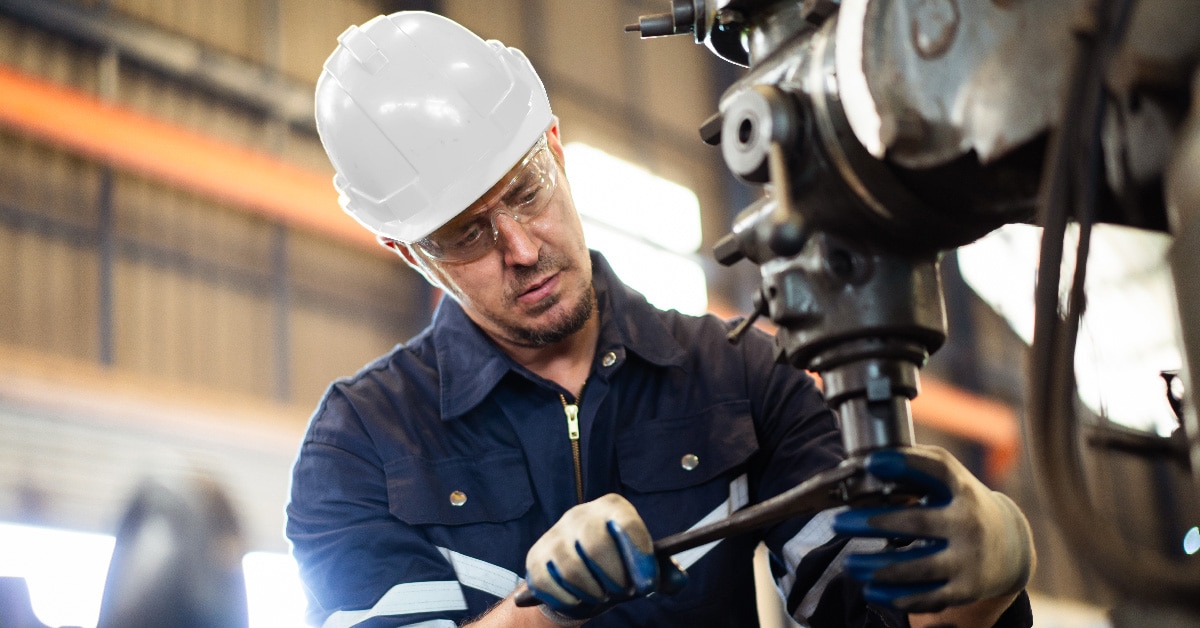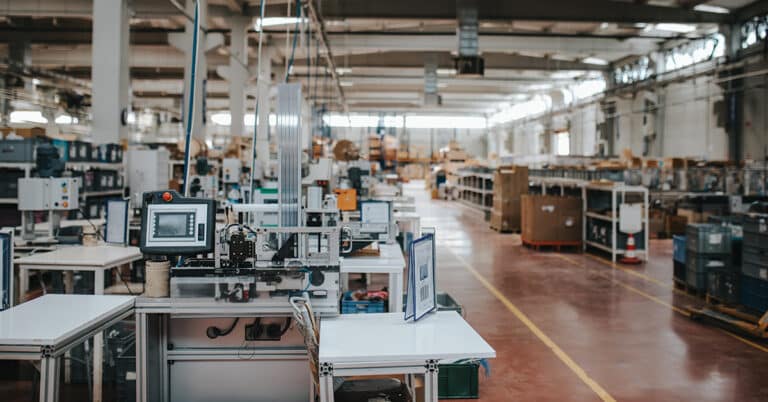When your manufacturing plant needs to perform maintenance work on a critical piece of machinery, do you call a mechanic or a technician? In many industrial environments, the answer is often, “What’s the difference?”. The reality is that even though you might think there’s little difference between these two titles, the distinctions actually can matter quite a bit.
Although both roles may be intimately involved in keeping your plant’s equipment in optimal working condition, there are some subtle but important differences between a maintenance mechanic and a maintenance technician. Manufacturers should pay attention to these distinctions, as they can have an impact on hiring, workforce development and planning. With a clearer understanding of their responsibilities, skills and needs, manufacturing plants can achieve better results from their operations.
Defining a maintenance mechanic
Maintenance mechanics are, simply put, the individuals responsible for hands-on work on equipment and machinery. They are the ones tightening the bolts and replacing the filters in your manufacturing environment. Their responsibilities typically involve diagnosing mechanical problems, replacing any worn components and conducting routine tasks such as lubrication. Much of what they do is centered on mechanical systems such as motors, hydraulics, bearings and gears.
The skillset of a maintenance mechanic is heavily weighted toward mechanical aptitude, with tool usage and reading blueprints being high priorities. They tend to receive their training through an apprenticeship or vocational programs.
Defining a maintenance technician
Whereas a mechanic focuses on the literal nuts and bolts of manufacturing equipment, a maintenance technician takes a more holistic perspective of the plant. Technicians tend to fix their attention on troubleshooting beyond mechanical systems to include electric and electronic systems. This means a technician gets involved with automation systems, PLCs, IIoT sensors and robotics. Rather than dealing solely with reactive repairs, a technician also performs more preventive and predictive maintenance.
All of this means technicians possess a cross-disciplinary skillset that includes digital and electrical expertise, along with mechanical know-how. Most often, these professionals receive their training at technical schools or through multi-skill development programs, with an emphasis on earning industry-recognized certifications.
Key differences between mechanics and technicians
- Mechanics tend to be repair-focused, with a specialization in mechanical breakdowns. They also are found usually in smaller shops or older plants that don’t have a high degree of automation.
- Technicians are more likely to be found in advanced manufacturing environments with a higher degree of automation. Additionally, the level of technical training and certifications are generally higher for these professionals than they are for mechanics.
The role of training and certifications
Regardless of the position, having the right level of technical training is crucial for both mechanics and technicians. For mechanics, this generally means completing a vocational training program. Hands-on learning on the job is the primary means of mechanics earning the requisite skill and know-how. Technicians, on the other hand, usually complete more formalized professional education in the form of OSHA training, PLC certification programs and/or predictive maintenance training. Despite these differences, the one commonality between both roles is the need for ongoing training and professional development as manufacturing technology becomes more sophisticated.
Choosing the right role for your plant
Deciding the makeup of your plant’s maintenance team is important because you want to make sure you have the right talent to handle all your needs. However, this can be complicated because every manufacturing environment is unique. A good rule of thumb to follow is that the more technologically advanced a factory is, the more important technicians are. Plants that still rely on older, manual equipment are more likely to need a higher percentage of mechanics to address their needs. On the other hand, advanced plants that feature automation and Industry 4.0 tools will find it more beneficial to have a larger technician team.
Of course, having a team that blends the skills of mechanics and technicians is going to be the best way to provide complete coverage for your plant. In instances where your team has skill gaps, outsourcing to a trusted maintenance provider can be an effective strategy.
The evolution of skilled technicians
Today’s manufacturing environment is much more complex than ever seen before, with digital systems and connectivity working their way into practically every aspect of production. With the advent of the Industrial Internet of Things and other advanced technologies, it’s more important than ever that manufacturers have the right cross-functional skills on their maintenance teams. Technicians who can troubleshoot multiple systems are in high demand, especially as the industry grapples with a decline in the availability of skilled labor.
Finding skilled labor
With mechanics and technicians both playing essential roles in the modern manufacturing environment, manufacturers need to make sure they can fill positions with the skills needed to keep their facilities running as smoothly as possible.
Outsourcing maintenance to the experts at ATS means manufacturers have access to the skills and expertise they need. We have a highly trained and qualified team of professionals with experience in dealing with multiple disciplines. Our services can be scaled to meet short-term and long-term maintenance requirements, and the focus we bring to uptime, safety and cost-efficiency has made us one of the leaders when it comes to keeping manufacturing facilities at their best.
To learn more about ATS’ wide range of industrial maintenance services and how you can leverage them to achieve better results in your plant, take the first step today and reach out to discuss your needs.






